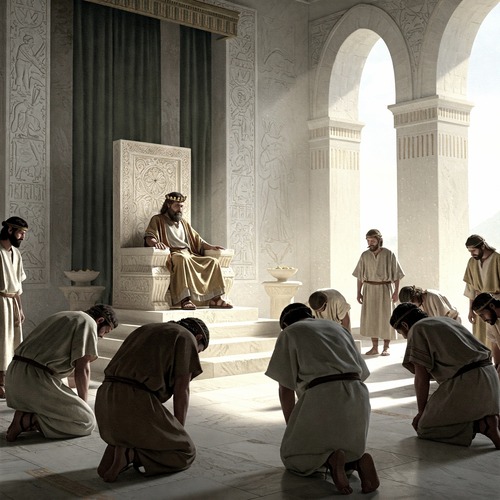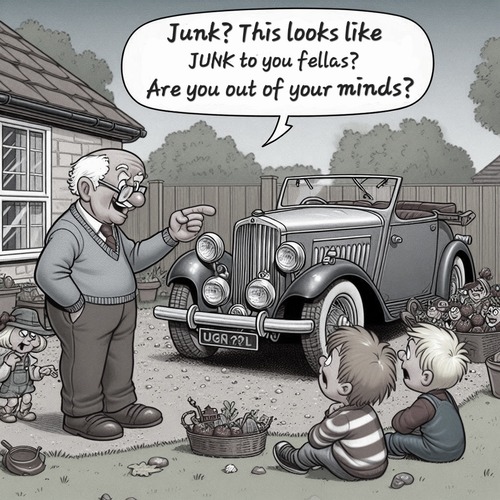Bribery and Corruption: What Do We Learn From the Bible?
Bribery and Corruption: Insights from Scripture
The Bible paints corruption as the antithesis of God’s perfect design for humanity and creation. When Adam and Eve sinned, their disobedience unleashed a wave of moral decay that has polluted our world ever since (Genesis 3). Corruption, described as “depraved” in Jeremiah 17:9, robs society of justice, righteousness, and trust.
Bribery as a Condemned Practice One of the clearest examples of corruption condemned in Scripture is bribery. Exodus 23:8 explicitly forbids it: “Do not accept a bribe, for a bribe blinds those who see and twists the words of the righteous.” Bribery distorts sound judgment, perverts justice, and grants unfair advantages. The prophet Isaiah rebuked those who “acquit the guilty for a bribe” (Isaiah 5:23).
Bribery subverts God’s moral order and standard for impartial justice (Deuteronomy 16:19). It erodes integrity and tramples on the poor and vulnerable. In the New Testament, Jesus condemned the religious leaders for being lovers of money, hinting at corrupting practices (Luke 16:14).
The Seriousness of Unchecked Corruption At its core, corruption rejects God’s sovereign authority over all areas of life. It caters to greed, dishonesty, and selfish ambition rather than operating with sincerity and truth (Joshua 24:14). Left unchecked, corruption infects society like “a little yeast working its way through the whole batch of dough” (1 Corinthians 5:6).
As salt and light, Christ’s followers are called to resist and expose corruption’s deadening influences (Matthew 5:13-16). We must be proactively modelling ethical behaviour that preserves justice and lives above reproach (Philippians 2:15). In governments, businesses, and daily living, upholding moral integrity honours God.
The Path of Righteousness While corruption promises empty shortcuts, God’s way leads to life, blessing, righteousness, and justice that will endure forever (Proverbs 16:8, 2 Peter 3:13). The remedy lies in repentance, renewal, and reliance on the Holy Spirit’s transformation to escape corruption’s snares (2 Peter 1:3-4).
As we align our lives to biblical ethics, generosity replaces greed, wisdom triumphs over foolish gain, and honesty rebuilds what sin has spoiled. Living with divine wisdom prevents the perils of illicit, underhanded behaviour (Psalm 119:104). Though the battle is arduous, God promises his blessing on those who abhor bribery and walk in obedient integrity (Psalm 26:10-12).
Related Reads:
Editor’s Pick

Not Home Yet: How Scripture’s Exile Theme Shapes Our Faith
When we read Scripture carefully, a striking pattern emerges: God’s people are almost always on the move, displaced, or living [...]

At Pentecost: God Fulfils Covenant and Reverses Babel
The scene is electrifying. Jerusalem, crowded with Jewish pilgrims from across the known world. A sound like rushing wind fills [...]

The Sun’s Age: Is It Really A Showstopper for A Young Earth?
When discussing creation and the age of the earth, sceptics often point to the sun as definitive evidence against the [...]

Is the Birth Canal Poorly Designed? Creationist Perspectives
The human birth canal is a frequent example cited by evolutionists as evidence against intelligent design. They argue the narrow [...]

Foetal Consciousness: How New Insights Strengthen Pro-Life Position
Science and faith have often been portrayed as adversaries, but when it comes to understanding the miracle of life, they [...]

Son of David: How Scripture Confirms Jesus’ Royal Lineage
For centuries, Jewish prophecy pointed to a coming Messiah who would fulfil specific ancestral requirements. Chief among these was the [...]

To the Jew First: Why Must Missions Start With Israel?
When Paul declares in Romans 1:16, “For I am not ashamed of the gospel, for it is the power of [...]

When God Manifests in Fire: What Does the Symbolism Mean?
Throughout Scripture, God frequently reveals Himself to His people through the powerful symbol of fire. From the burning bush to [...]

The Human Knee: Where Evolution’s Kneejerk Explanations Fail
Walk, run, jump, climb, kneel, squat—all these movements depend on a remarkable piece of biological engineering: the human knee. As [...]

The Big Hoax: Turns Out ‘Junk’ DNA Isn’t Junk After All
For decades, evolutionary scientists dismissed vast stretches of our DNA as useless “junk”—leftover evolutionary baggage with no purpose. This concept [...]





